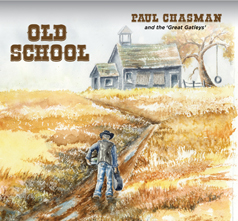Luthiers – March 2, 2002
 I've been fortunate to have had three world-class guitars built
for me by master luthiers. Rob Ehlers built me a concert
cutaway steel string in 1976, and a larger version in 1988. In
1996, Jeffery Elliott built an exquisite classical cutaway for
me. Each of these three experiences was extremely important
to my musical development. My playing has grown tremendously
with the ownership of my custom guitars, due to the inspiration
they have provided, the sounds they have made possible, the physical
challenges they have helped me overcome, and the intangible connection
I have made with instruments that were mine since their inception
and that I have played every day since.
I've been fortunate to have had three world-class guitars built
for me by master luthiers. Rob Ehlers built me a concert
cutaway steel string in 1976, and a larger version in 1988. In
1996, Jeffery Elliott built an exquisite classical cutaway for
me. Each of these three experiences was extremely important
to my musical development. My playing has grown tremendously
with the ownership of my custom guitars, due to the inspiration
they have provided, the sounds they have made possible, the physical
challenges they have helped me overcome, and the intangible connection
I have made with instruments that were mine since their inception
and that I have played every day since.
Both Rob and Jeff gave me an education. They taught me to distinguish the tonal qualities of different woods. They taught me about bracing styles, body and neck designs, and the countless details that affect the look and sound of the guitar. With each commission, they were generous with their information and seemed eager to pass on their knowledge. The process of having a custom guitar built is fascinating and exhilarating. The luthiers with whom I have worked have asked me lots of musical and philosophical questions. They have become intimately familiar with my music in order to make decisions that will compliment my playing. One of the biggest joys for me is picking the wood. I admit, the sight of beautiful Brazilian Rosewood makes me weak in the knees. However, just like picking a romantic partner, looks aren't everything. With wood, there is the tap test. The luthier holds the plank to your ear and taps it in different spots. Do this with several pieces of wood and you will hear startling variations in sustain, overtones, bass and treble response. All these factors go into the moment you point to a plank and say, "I want that to be my guitar!" Once the materials are chosen and the structural and aesthetic decisions are made, I enjoy seeing the guitar at each stage of development. What a thrill it is to see the top, sides, and back connected for the first time; to see the neck take shape and then be attached to the box; to watch the process unfold as the parts and pieces incrementally become a living, breathing, beautiful instrument! When Jeff Elliott was building my classical, I would call him once a week and say, "Is it ready yet?" Most of the luthiers I have met have been remarkably honorable craftsmen. Luthiers seem to have a code which requires them to approach their work with a high degree of commitment, love, and integrity. They work in isolation against daunting odds. A factory can crank out a guitar in hours or days, whereas it takes a luthier months. No matter that a factory built guitar is not in the same league as a hand-built instrument -- most people don't have the specialized training to recognize the difference. Most of the best luthiers reject the use of machinery because, although it would make things faster and easier, they insist that the hands-on process makes for a better guitar. For the same reason, the best luthiers only work on one or, at most, a few guitars at a time because they want to attend to every detail. The astonishing number of back-breaking hours that go into each guitar, the high cost of quality materials, and the competition from colleagues and mass producers make guitar making a difficult profession with few financial rewards. I am in the process of interviewing
luthiers to build me an 8-string classical guitar. At this
juncture, my sensibilities are particularly acute to what fine
people most luthiers are. Every maker with whom I have
talked has impressed me with his earnestness, integrity, and
talent. I feel genuinely sad because I believe each of
them would build me a wonderful guitar, and I must say no to
all but one. In commissioning a luthier, we lend our support
to a rare breed who favor individualism and artistic integrity
over commercialism and mass production.
I urge anyone who wants to own a high quality guitar to do a
little comparison shopping; for the price you spend on
a high end factory-built model, it may be possible to get
twice the guitar from a luthier who builds an instrument that
is truly yours. March 3, 2002 Note: Since this column was written, Paul has commissioned Woodley White of Portland, Oregon, to build his 8-string. Paul calls Woodley once a week and asks, "Is it ready yet?" BACK TO ARCHIVES |

